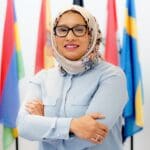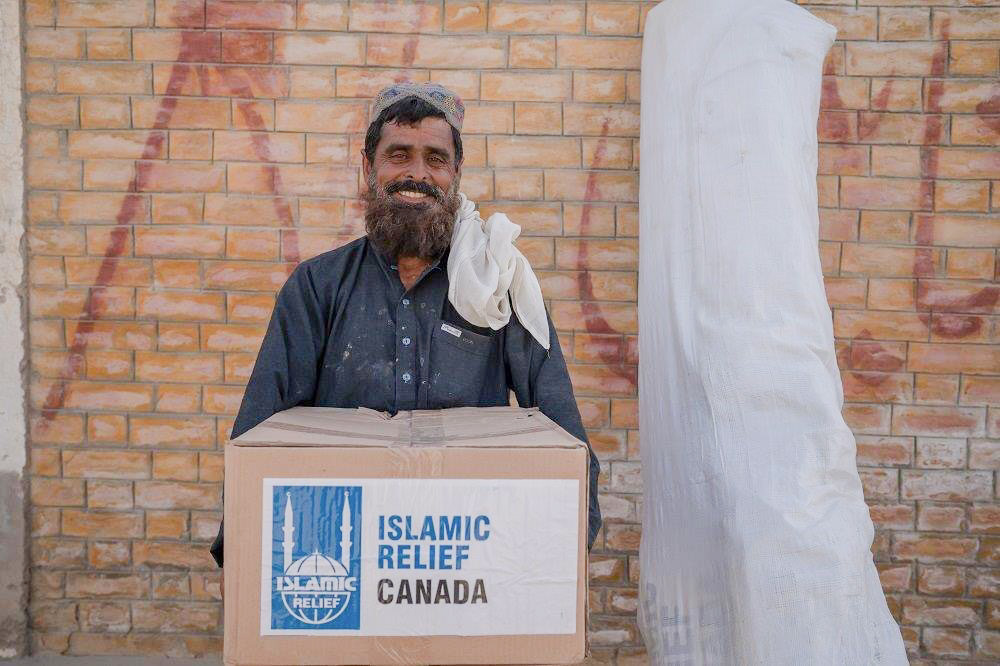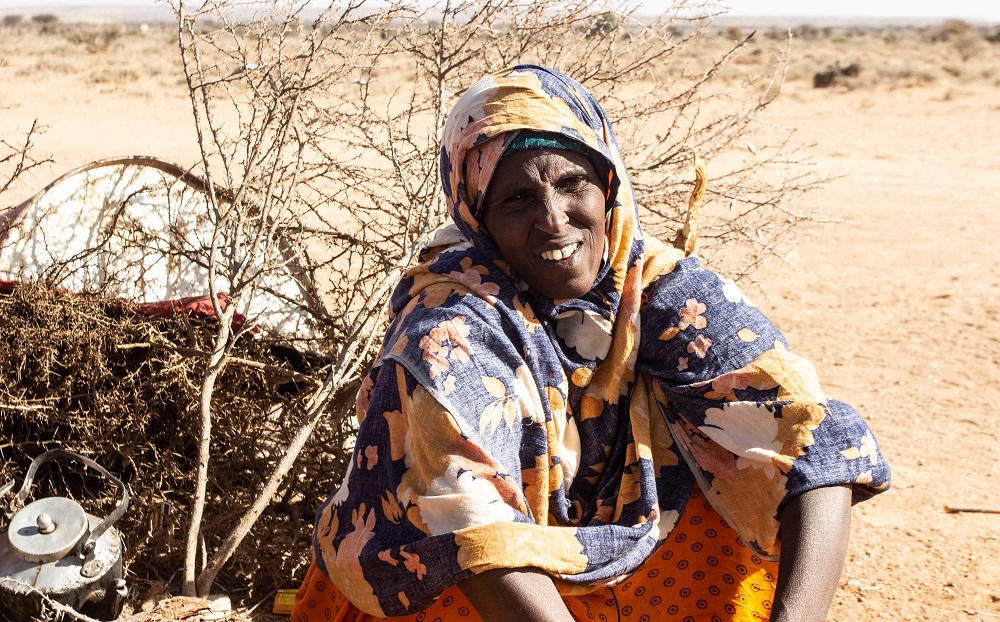Investing in a green economy is not only an environmental necessity – it is a moral imperative for Muslims around the world, argues Shahin Ashraf, Islamic Relief’s head of global advocacy.

The Islamic principles of stewardship, justice, and balance demand we, as Muslims, act to protect our planet and ensure a sustainable future for generations to come.
As the world faces the devastating impacts of climate change, the need for a transition to a low-carbon economy has never been more urgent. The continued burning of fossil fuels, deforestation, and other environmentally destructive practices have brought us to the brink of a planetary crisis.
We cannot continue with business as usual, and we must take bold action to address the root causes of this crisis.
Poor people pay the heaviest price for Pakistan floods
The impact of climate change is different, depending on where you live.
Sadly, for some families, climate change is forcing them from their homes. In the summer of 2022, Pakistan experienced a catastrophic flood that devastated the country for several months. The disaster claimed the lives of over 1,700 people and caused economic losses of over ₨ 3.3 trillion ($15.2 billion) – and, as always, the poorest people bore the brunt.
Among them were Ubaid and his family, who lost their home in Noshki to the floodwaters, and in the aftermath of the disaster lived in a tent provided by Islamic Relief. Ubaid summed up their plight, pointing out that, “We were already poor, the floods made us poorer.”
Climate change was a significant contributor to the disaster, which was triggered by heavier than usual monsoon rains and melting glaciers.

The situation was so dire that Pakistan declared a state of emergency on 25 August. This flood was the deadliest in the world since the 2020 South Asian floods and was described as the worst in Pakistan’s history. The enormous damage caused by the flood saw it make history as one of the world’s most expensive natural disasters. The country’s path to recovery will undoubtedly be a long and difficult one.
Climate change contributing to Horn of Africa famine
The Horn of Africa is facing a severe famine crisis that has left millions of people in urgent need of food, water, and medical assistance. The famine has been caused by a combination of factors, including drought, conflict, and displacement.
Countries in the region, such as Somalia, Ethiopia, and Kenya, are among the worst affected by the crisis. Many families have been forced to flee their homes in search of food and water, leaving them vulnerable to disease and other risks.
The situation is particularly dire for children, who are often the most vulnerable to the effects of famine. Malnutrition rates have skyrocketed, with many children suffering from severe acute malnutrition that requires immediate medical attention. Islamic Relief colleague Ishmail Hussein reported unprecedented suffering:
“I have never witnessed a situation like this in my life. Many babies and young children are dying of malnutrition and measles. If this lack of rain continues, we expect many more deaths.”
Ishmail is based in Baidoa, one of the worst affected areas in Somalia. The area is currently hosting the largest number of displaced people in the country after the capital Mogadishu. Local food prices have rocketed, with staple foods such as red sorghum and white maize costing 75% more than this time last year.

Humanitarian aid and lasting solutions are vital
In addition to providing immediate assistance to people in dire need, long-term solutions are needed to address the root causes of the famine, including climate change, conflict, and poverty.
By working together as humanitarians, we can help to prevent future crises and ensure that families in the Horn of Africa have access to the resources they need to thrive.
Fortunately, there is a growing recognition among governments, businesses, and civil society that investing in a green economy is not only necessary, it also makes economic sense.
Renewable energy, energy efficiency, sustainable agriculture, and other green technologies have the potential to create millions of new jobs, spur innovation, and boost economic growth – all while reducing our carbon footprint and protecting the planet.
Islamic finance can power the green economy
From an Islamic finance perspective, investing in a green economy is a natural fit. Islamic finance is based on the principles of risk-sharing, fairness, and social responsibility, and it prioritises investments with real social and environmental benefits. With its track record of investing in sustainable infrastructure, renewable energy, and other environmentally beneficial projects, the Islamic finance industry is uniquely positioned to support the transition to a green economy.
What’s more, investing in a green economy can help to address some of the deep-seated socio-economic inequalities that exist in Muslim communities around the world.
By promoting sustainable development and creating green jobs, we can help to build more resilient and inclusive communities and ensure that everyone has access to the resources and opportunities they need to thrive.
In short, investing in a green economy is not only a moral imperative on this World Earth Day, but also a smart economic decision that can benefit us all. As Muslims, we have a responsibility to take action to protect our planet, promote social justice, and create a better future for all.
Let us embrace the challenge of building a sustainable and just world, and work together to create a better future for ourselves and for generations to come.










